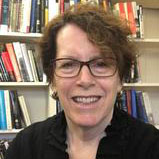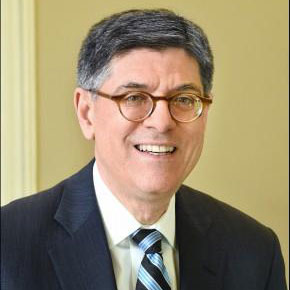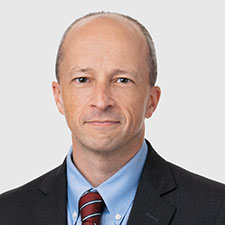Past conversations
A summary of previous presentations from scholars, fellows, and former administration officials

Torben Iversen, Harold Hitchings Burbank Professor of Political Economy at Harvard University (March 26, 2021)
Challenges to Democratic Capitalism: Transitioning to the Knowledge Economy
In his presentation, Iversen made the case that democracy and capitalism have developed as mutually sustaining and reinforcing systems, with the spread of democracy principally driving the expansion of advanced capitalism. He explored critiques from the left and right and argued that democratic governance impacts factors ranging from higher education and financial systems to macroeconomic management and trade regimes that have generated a new “knowledge economy” based on high-skilled labor and knowledge-intensive, decentralized businesses. While enhanced educational opportunities and the mobility of capital have benefitted many, this new form of capitalism has also created new divisions in terms of education and skill as well as geographic location that have hurt others.

Sven Beckert, Laird Bell Professor of History at Harvard University (April 30, 2021)
The Emergence and Development of Modern Capitalism
Beckert introduced three of his projects that offer historical perspectives on the development of capitalism, focusing on different factors and time periods. In Empire of Cotton: A Global History, Beckert specifically explores how the commodity of cotton transcended geographic distance, types of labor and political regimes that generated a diverse capitalist economy subject to perpetual transformation. Further, his book American Capitalism: New Histories focuses on the emergence of global markets, while the piece he is currently working on considers capitalism’s evolution over the past half-century and draws particular attention to new developments in the post-Cold War era. With respect to democracy, Beckert contended that fundamental tensions between liberal democratic values and the dynamic forces of capitalism create a strained relationship.

Jamila Michener, Associate Professor of Government at Cornell University (May 21, 2021)
Politics, Power, and Precarity: How Tenant Organizations Transform Local Political Life
In a presentation of her new project, Michener highlighted the critical yet largely understudied role of tenant organizations in building structures of political power and democratic engagement among members of economically and racially marginalized communities. She introduced the research process underlying the work and presented findings with regard to the origins, structure, and political engagement of local tenant organizations across the country. By creating a space in which ideas about power relations and the political economy encounter real experiences of economic precarity, these organizations have emerged as avenues for local political involvement for individuals who find themselves detached from formal political and capitalist institutions.
Isabel Sawhill, Senior Fellow in Economic Studies at Brookings Institution (June 11, 2021)
New Challenges to Democracy and Capitalism
Sawhill discussed challenges facing democratic capitalist systems, arguing that both democracy and capitalism are desirable but currently fall short of their potential to generate a productive economy and a prosperous society. While she claimed that capitalism is necessary for economic dynamism and efficiency, rising inequality, slow growth rates and detrimental environmental impacts have provoked public skepticism. Ideally, it is democracy’s role to respond to and mitigate the shortcomings of the free market, but political institutions have lately proven insufficient to alleviate social and environmental troubles. In order to fix this defected interplay, Sawhill contended that capitalism must be reformed, but that democracy needed more profound correction to adequately respond to the demands of the public and establish a new relationship of trust between citizens and institutions.

Naomi Lamoreaux, Stanley B. Resor Professor of Economics and History at Yale University (October 8, 2021)
Patents and the Political History of Innovation in America
Lamoreaux presented the case for patents as an effective yet imperfect tool for encouraging creativity and development. In a brief historical analysis, she highlighted two periods of substantial growth in the number of patents granted relative to U.S. population, which occurred during the Second and Third Industrial Revolutions. Contrary to the accusation that the patent system opens pathways to temporary monopolies, she emphasized their critical role in offering incentives for new inventions, while still allowing for substitute products to emerge. Further, Lamoreaux pointed to the benefit of patents in enabling free exchanges of technological information that eliminate the threat of free-riding to investors. Finally, Lamoreaux suggested that the patent creation process incubated partnerships between individuals and local communities that drove advancements in the 19th century.

Jacob “Jack” Lew, Former United States Secretary of the Treasury (October 22, 2021)
America and the Global Economy
Former U.S. Secretary of the Treasury Jack Lew discussed the symbiotic interplay of democracy and market capitalism that creates opportunities for society and growth for the economy. In order to persist and prosper, the two systems rely on each other for reinforcement, yet the weakening of one may involve the detriment of both. He claims that the current moment imperils the proper functioning of democratic capitalism by allowing excesses in the free market and fostering public suspicion towards political leadership, indicating an urgent need for corrective action.

Yuval Levin, Beth and Ravenel Curry Chair in Public Policy at the American Enterprise Institute (November 10, 2021)
Alienation in America: Reflection on an Era of Discontent
Levin identified the widespread loss of trust in public and private institutions as principal contributors to the acute sense of alienation in American society. Levin argued that individuals within these institutions have failed to take seriously their responsibility to respond to people’s desires and needs, instead using their positions as performative platforms to elevate personal image. This abuse of entrusted authority has shattered the bond between the public and institutions, provoking resentment among the American people by stripping them of agency and making them feel excluded from their own system. To move forward as a unified country, Levin advocated structural reforms to reestablish a sense of obligation and responsibility in individuals serving in institutions and thus providing the public a stake in their own future.